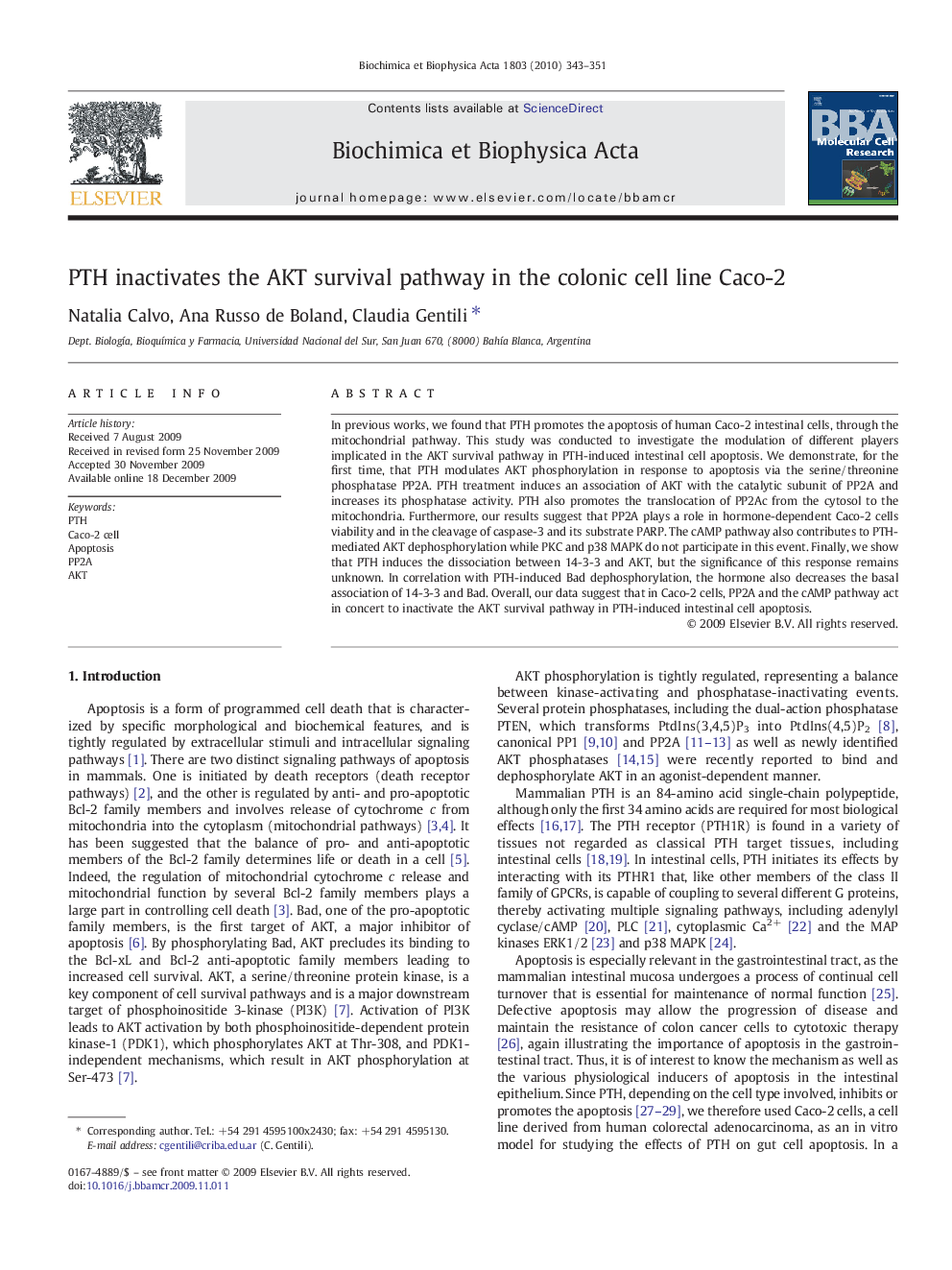| Article ID | Journal | Published Year | Pages | File Type |
|---|---|---|---|---|
| 10802921 | Biochimica et Biophysica Acta (BBA) - Molecular Cell Research | 2010 | 9 Pages |
Abstract
In previous works, we found that PTH promotes the apoptosis of human Caco-2 intestinal cells, through the mitochondrial pathway. This study was conducted to investigate the modulation of different players implicated in the AKT survival pathway in PTH-induced intestinal cell apoptosis. We demonstrate, for the first time, that PTH modulates AKT phosphorylation in response to apoptosis via the serine/threonine phosphatase PP2A. PTH treatment induces an association of AKT with the catalytic subunit of PP2A and increases its phosphatase activity. PTH also promotes the translocation of PP2Ac from the cytosol to the mitochondria. Furthermore, our results suggest that PP2A plays a role in hormone-dependent Caco-2 cells viability and in the cleavage of caspase-3 and its substrate PARP. The cAMP pathway also contributes to PTH-mediated AKT dephosphorylation while PKC and p38 MAPK do not participate in this event. Finally, we show that PTH induces the dissociation between 14-3-3 and AKT, but the significance of this response remains unknown. In correlation with PTH-induced Bad dephosphorylation, the hormone also decreases the basal association of 14-3-3 and Bad. Overall, our data suggest that in Caco-2 cells, PP2A and the cAMP pathway act in concert to inactivate the AKT survival pathway in PTH-induced intestinal cell apoptosis.
Keywords
Related Topics
Life Sciences
Biochemistry, Genetics and Molecular Biology
Biochemistry
Authors
Natalia Calvo, Ana Russo de Boland, Claudia Gentili,
